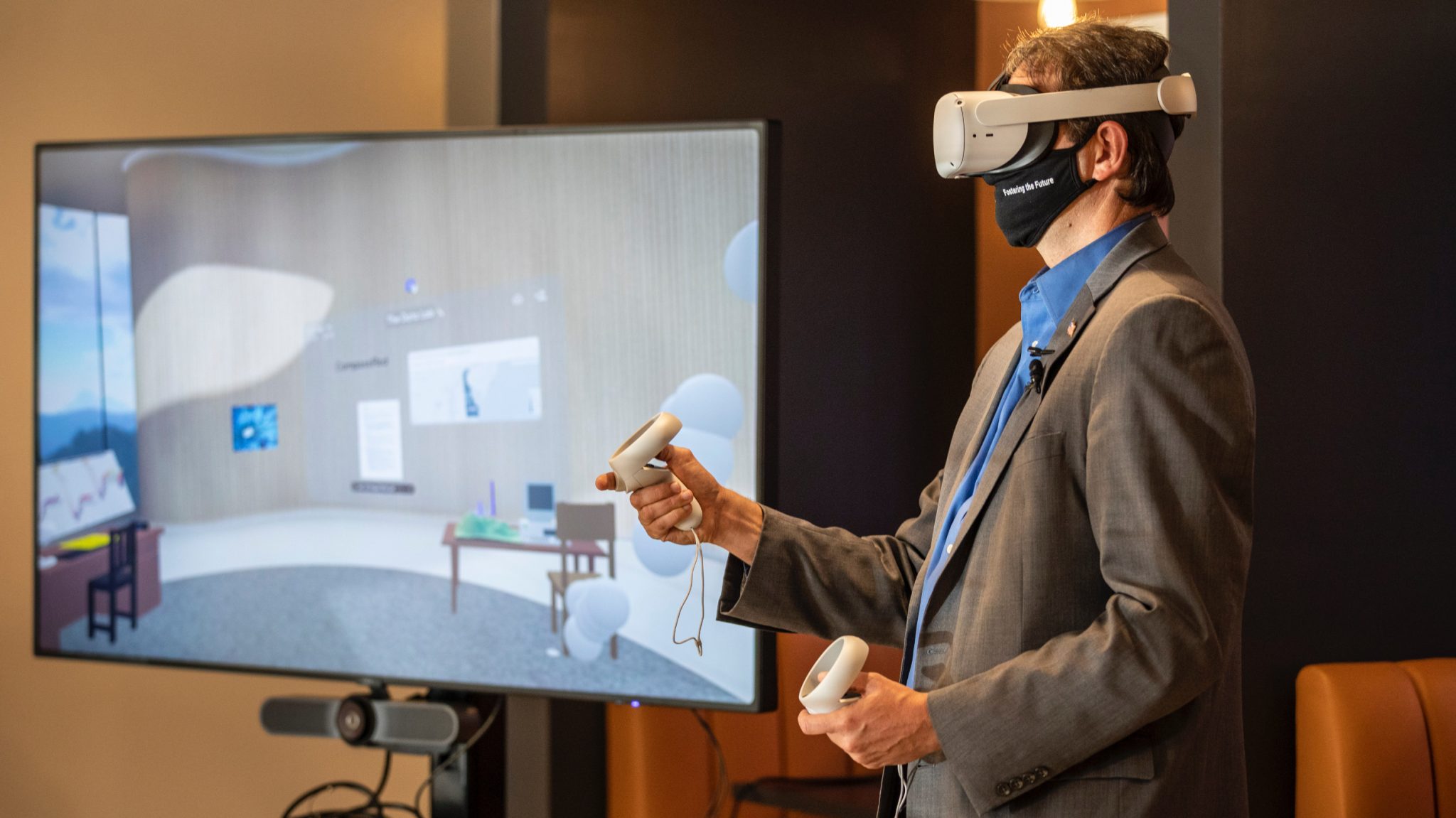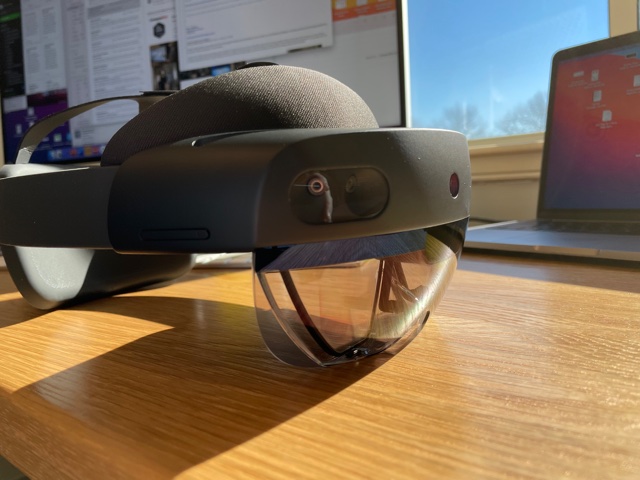Delaware Data Innovation Lab is Producing Results to Fight the COVID-19 Pandemic

26 Feb 2021
News
With the goal of providing the data analytics decision-makers need to maneuver and adapt to the COVID-19 pandemic, Wilmington information technology and business-sense came together in a big way for the creation of the Delaware Data Innovation Lab (DDIL).
“The concept of the Data Lab was developed at the beginning of the pandemic in March of 2020,” said Patrick Callahan, CEO, CompassRed. “Seeing a strong need for data analysis, having the dream of an ‘Innovation Lab’ modeled off of MIT’s Media Lab, and receiving a flood of resumes from some of the most talented people I have ever seen, all played a factor in forming an answer to the question: ‘How do we maximize the opportunity in this moment?’ We had looked into every possible funding source. When the grant opportunity came about, we were ready to start.”
CompassRed was awarded a $2M grant as part of the CARES Act Innovation Grant from New Castle County, Delaware. The grant was specifically designed to support businesses and entrepreneurs to develop new programs and technologies to expedite increased coronavirus safety, and to establish foundations for a strong economy and a healthy, thriving community for years to come. Job creation and attraction of tech companies and talent to the county were also goals.
 The timeline shows how prepared CompassRed was to hit the ground innovating after they learned of the CARES Act funds in the summer of 2020. DDIL was officially launched on December 1st, and by the beginning of February 2021, they were deep into projects and reporting results.
The timeline shows how prepared CompassRed was to hit the ground innovating after they learned of the CARES Act funds in the summer of 2020. DDIL was officially launched on December 1st, and by the beginning of February 2021, they were deep into projects and reporting results.
“We were notified of our award in October and immediately — the day after — put out a call for resumes for the Lab,” said Callahan. “We were able to fill the roles in two weeks. I believe a big part of the reason we were able to build the team so quickly was because of the ‘why’ behind the development of the Data Lab: we want to save lives with innovations in data. We want to build something that goes beyond our years. The mission attracted the people.”
“With the team developed, work on the projects began right away in November. We looked for projects that were COVID related with available data so we could demonstrate the purpose of the Data Lab. We partnered with several organizations in the areas of education, healthcare, corporate, and nonprofit to make sure we demonstrated the power and benefits of the Data Lab.”
Callahan said that because they needed to move quickly, the decision on what to pursue relied on four factors: (1) access to data, (2) problem sets that demonstrated benefits for all stakeholders — Healthcare, For Profit, Education, Nonprofit, and Government, (3) greatest impact, and finally, (4) an innovative approach.
“We needed to educate our community on the importance of DDIL and felt this model was appropriate,” said Callahan. “In the future, given a longer runway, we may not choose to look at access to data as a barrier to answering questions.”
Callahan said the fellows and technical team members have been working around the clock since October to ensure success and return on investment. Their first six projects include a FAFSA data dashboard, hospitality sentiment tracker, virtual reality meeting space, evictions data journal, city indicators live dashboard, and an interactive wastewater dashboard. More about these projects can be found here.

“Key to our success will be the underlying need for diversity and inclusion in our fellows and colleagues. We feel strongly that to analyze the data correctly, you have to understand the context behind the data and the impact it will have viewed from a diverse set of lenses. We believe diversity and inclusion are not just moral imperatives, but a foundation that needs to be in place for the impact to be effective and true. Without it we will not be successful.”
The work of DDIL resides at the convergence of technology, social factors, economic ramifications, and public health. Its focus to lessen the impact of COVID-19 by using advanced data analytics and artificial intelligence to fast forward research ideas, refine them, and get them into the marketplace is being realized.
“Because the complexities of our society are growing in so many ways — social, climate, health, economic, etc. — reliance on data will become a top priority in order to make evidence-based decisions,” said Callahan. “We don’t want decision-makers to fly blind. We’re here to inform them.”
The Delaware Data Innovation Lab
Read more about their projects, sign up for their mailing list, or submit a problem to be solved here. Follow them on Twitter, LinkedIn, and Instagram.
City of Wilmington Office of Economic Development (OED)
The OED is committed to ensuring a diversified local economy for the City by promoting and developing all varieties of industry and by initiating programs to increase job opportunities for residents of the City of Wilmington. Contact them at (302) 576-2120 or sjpark@wilmingtonde.gov. Follow them on Facebook and LinkedIn.
More Topics

Wilmington Has the Outdoor Recreation You Crave!
Feb 15 2021


